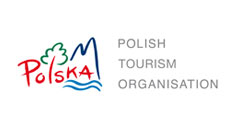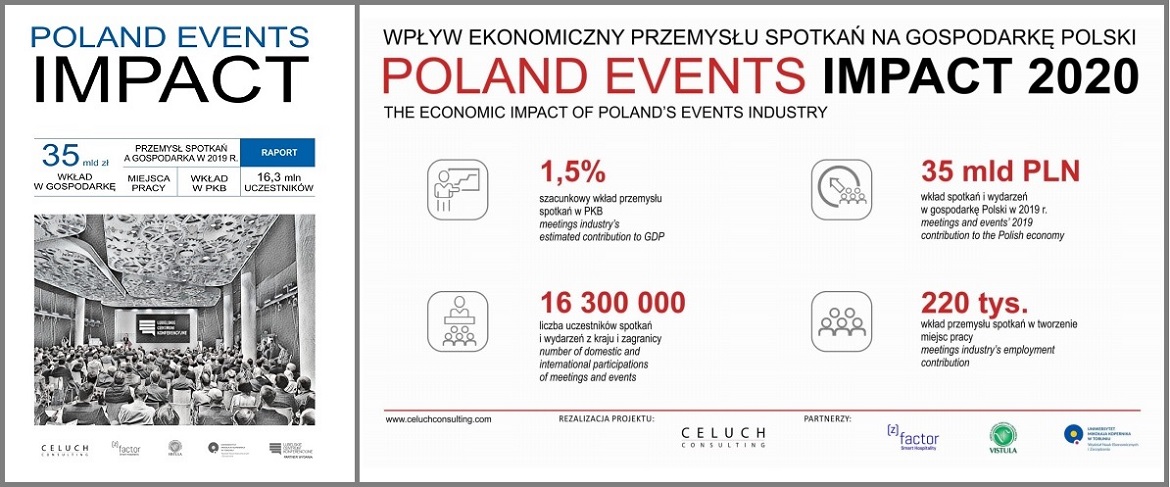Launch of the Poland Events Impact 2019 report
Poland Meetings Impact, Poland’s pioneering report analysing the meetings industry’s economic contribution (1% at the time) was compiled back in 2015 under the auspices of MPI Foundation, Polish Tourism Organisation and MPI Poland. In 2019 events and meetings planning generated an estimated 1.5% of GDP, with its economic contribution at the level of 35 billion PLN.
“The goal of the research conducted as part of the Poland Events Impact 2019 - Economic Impact of Poland’s Meetings Industry project was to quantify the economic value of meetings and events (of the social, economic and business variety) staged in Poland and to specify their economic contribution”, said Dr. Krzysztof Celuch, head of the Celuch Consulting project team, lecturer at Vistula School of Hospitality and Nicolaus Copernicus University.
In 2019 the sector in question contributed 34,595,951,000 PLN to Poland’s economy, while its gross value added was estimated at 14,256,663,200 PLN. Meetings and events lasted two days on average and recorded 16,302,400 attendants (domestic and foreign). Meetings industry’s employment impact involved creating 220,000 jobs.
The study’s scope encompassed economic aspects related to the meetings industry’s impact on national economy in the context of fundamental reference points, i.e. value added, GDP and employment. The project’s three-stage analysis examined three groups of stakeholders: participants, organisers of meetings and events, as well as venue administrators. The set goal was achieved thanks to collected data and an econometric model based on Statistics Poland’s data and intended to define the meetings sector’s contribution to national economy.
Poland Events Impact 2019 - Economic Impact of Poland’s Meetings Industry was compiled by a team of researchers and industry professionals supervised by Celuch Consulting, in cooperation with experts from the Faculty of Economic Sciences and Management of Nicolaus Copernicus University, Meeting Professionals International Poland Chapter and Vistula School of Hospitality. The list of authors also includes professors Barbara Neuhofer (Salzburg University of Applied Sciences) and Jolanta Żyśko (Vistula School of Hospitality), as well as Magdalena Kondas, Head of Vistula School of Hospitality’s Business Council.




